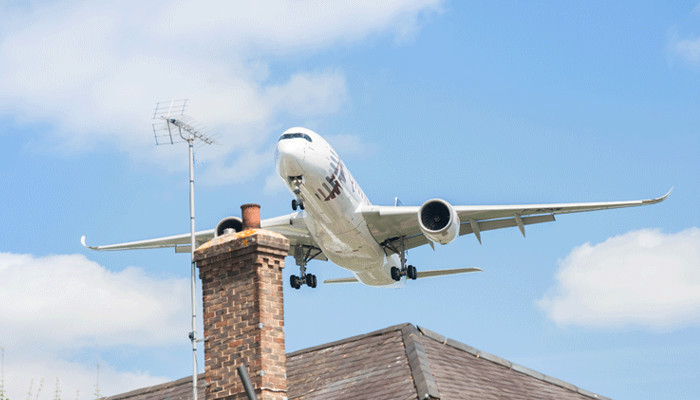
Airplane and airport noise increases the risk of heart attack and stroke, a new study warned.
According to HealthDay, a study published in the Journal of the American College of Cardiology on Wednesday, January 8, 2025, revealed that living near the airport could harm heart health.
The study found that people who live close to the airport have 10% to 20% worse heart structure and function as compared to the people because they regularly hear the roaring noise of airplanes taking off and landing.
Researchers noted that the heart muscles of the residents living near noisy airports grew thicker and stiffer over time, which made it difficult to pump blood. These negative impacts increase the risk of heart attack and stroke to quadruple.
The senior researcher, Dr. Gaby Captur, in a news release by the University College London Institute of Cardiovascular Science, said, “Our findings add to a growing body of evidence that aircraft noise can adversely affect heart health and our health more generally.”
Moreover, the director of the Centre for Environmental Health and Sustainability at the University of Leicester (UCL), Anna Hansell, expressed concern that the “type of abnormalities we saw with nighttime aircraft noise might result in increased risk of heart problems and stroke.”
“Aircraft noise at night has been shown to affect sleep quality, and this may be an important factor affecting health,” she continued.
Furthermore, researchers also warned that too much environmental noise could activate a “fight or flight” stress response that can cause high blood pressure, digestion problems, increased appetite, and weight gain.















